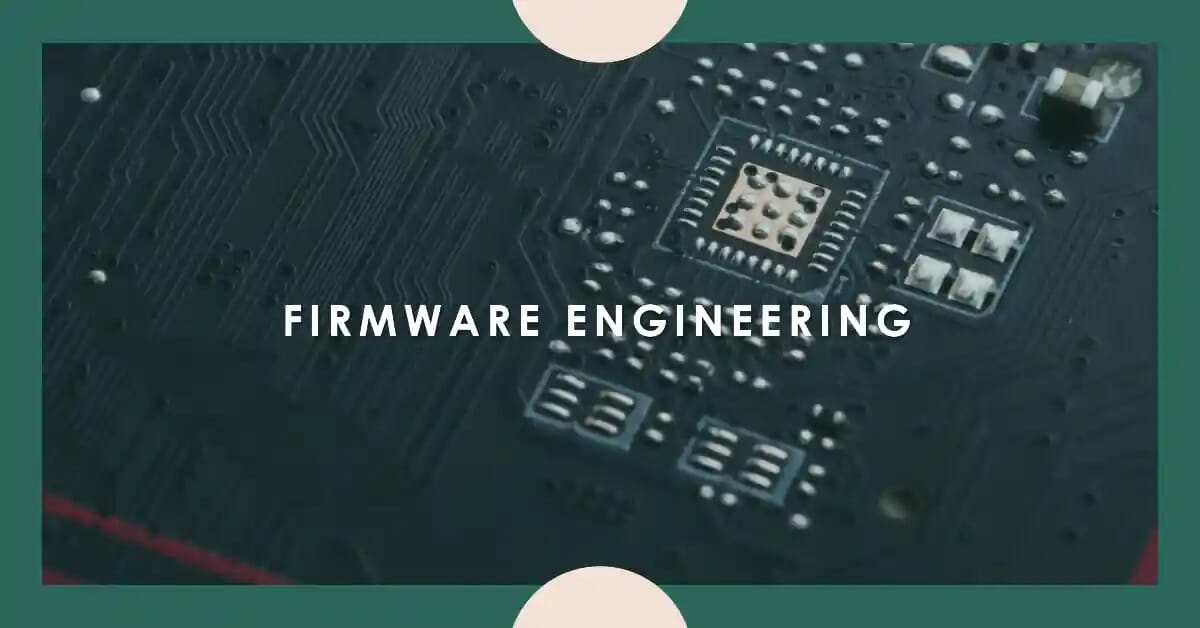A firmware engineer is a specialized professional who plays a crucial role in the development and maintenance of electronic devices. Firmware refers to the software embedded within hardware components, providing the necessary instructions for the device to function properly. Firmware engineers are responsible for designing, implementing, and testing the firmware that enables the hardware to perform its intended tasks.

Similar to software engineering, firmware engineering requires a strong background in programming and computer science. Firmware engineers possess a deep understanding of low-level programming languages, such as Assembly and C, as they work directly with the hardware components. They collaborate closely with hardware engineers to ensure the firmware is optimized for the specific device and meets the required functionality.
Firmware engineers also share some similarities with software engineer in terms of their responsibilities and skill sets. They both work with code and focus on designing reliable and efficient software systems. However, while software engineers primarily develop applications and systems that run on general-purpose computers, firmware engineers focus on the software that operates within dedicated hardware devices.
One crucial aspect of firmware engineering is ensuring the quality and reliability of the firmware. This is where the overlap with quality assurance (QA) engineering comes into play. Firmware engineers often collaborate with QA engineers to perform rigorous testing of the firmware, identifying and addressing any bugs or issues that may arise. QA engineers play a critical role in verifying the functionality, performance, and stability of the firmware, ensuring that it meets the required standards.
In addition to their technical skills, firmware engineers must also possess strong problem-solving abilities. They need to analyze complex hardware requirements, identify potential challenges, and develop creative solutions to overcome them. Attention to detail is crucial, as even a small error in the firmware code can have significant consequences for the overall functionality of the device.
Firmware engineers also need to stay updated with the latest advancements in technology and industry trends. They need to be aware of new hardware developments, emerging programming languages, and evolving best practices in firmware engineering. Continuous learning and professional development are essential to ensure their skills remain relevant and effective in the ever-changing technological landscape.
Overall, firmware engineering is a specialized field that bridges the gap between software and hardware. Firmware engineers leverage their expertise in software engineering, collaborate with hardware engineers, and work closely with QA engineers to design, implement, and test firmware that enables electronic devices to function effectively. Their contributions are vital in ensuring the seamless operation of a wide range of devices, from consumer electronics to industrial equipment, and they play a crucial role in advancing technological innovations.




